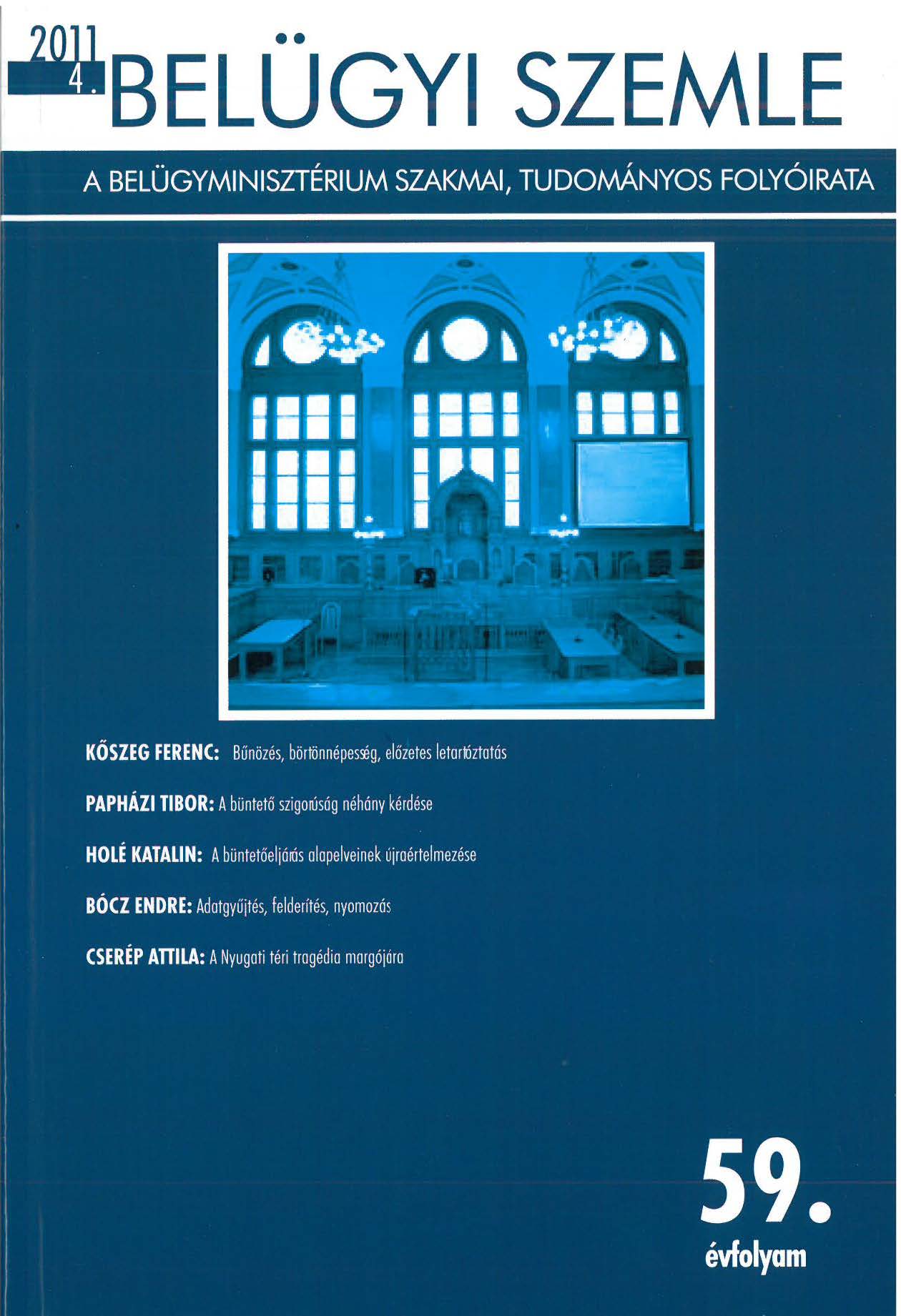Abstract
The author scrutinizes the terminological vagueness of „fact”, „data” and „proof” in Hungarian forensic science and criminal procedure. The author explores the theoretical background of the transition in Hungarian criminal procedural legislation in the 1950’s, as well as its effects on data-collection as opposed to formal investigation. After defining and distinguishing data-collection, criminal investigation, fact finding and criminal reconnoitring, he argues that formal investigation rarely, if ever, adds anything to the knowledge achieved by data collection.
References
.

This work is licensed under a Creative Commons Attribution-NonCommercial-NoDerivatives 4.0 International License.
Copyright (c) 2025 Academic Journal of Internal Affairs
Downloads
Download data is not yet available.
